- Home
- Martin Cruz Smith
The Girl From Venice
The Girl From Venice Read online
Thank you for downloading this Simon & Schuster eBook.
* * *
Sign up for our newsletter and receive special offers, access to bonus content, and info on the latest new releases and other great eBooks from Simon & Schuster.
CLICK HERE TO SIGN UP
or visit us online to sign up at
eBookNews.SimonandSchuster.com
To Em from beginning to end
1
Without a moon, small islands disappeared and Venice sank into the dark. Stars, however, were so brilliant that Cenzo felt drawn to them, even as mud oozed between his toes. The faint report of church bells carried over the lagoon, from farms drifted the smell of manure, and once or twice he caught the tremolo of a German gunboat plowing the water.
A curfew barred all nighttime activity, no exceptions except for fishermen. Fishermen were nocturnal creatures who slept by day and fished by night. They stayed out on the lagoon for days at a time and when they came ashore they smelled so much of fish that cats followed them through the streets.
Cenzo’s only illumination was an oil lamp that hung on the mast, but he didn’t need to see his catch; one touch told him whether he was handling sea bass, mullet, or a lost boot. He wore no shoes or boots himself; the mud would only suck them off. He did have a variety of nets and traps, tridents and rakes, for catching fish and damp sailcloth to cover them with. Every night was different. Tonight’s catch was mainly cuttlefish come to lay their eggs. They rolled their otherworldly eyes toward the lamp. Fifty percent of fishermen said that cuttlefish were best caught on a full moon. Another fifty percent claimed the opposite. Sole, sea bass, and orata Cenzo laid in wicker baskets. Bullheads he threw back into the water.
The air reverberated as Allied bombers passed overhead on their way to rain destruction on Turin or Milan or Verona. Anywhere but Venice. Sacred Venice was attacked only by pigeons. The population of the city had tripled as refugees poured in, hidden by the blackout.
From the market Cenzo planned to sail home. For a week he had not bathed in freshwater or eaten more than grilled fish and polenta cakes. He pushed the boat off the grass to drop in the rudder when something sizable rose to the surface. Cenzo held his lamp over the water as the body of a girl took shape.
A chill ran through Cenzo. He expected any second that the girl would become a hallucination. Fishermen saw all sorts of things at sea and eyes played tricks at night. At a touch she might separate into the white belly of a ray and the blank face of an octopus. But no, she stayed intact.
She floated faceup in a dirty nightgown. He was no expert on the ages of girls but he guessed she was in her late teens. She was barefoot, her eyes were closed, and her skin was a nearly translucent white. Her lips were purple and long hair and sea grass wrapped around her neck. Cenzo was hardly a believer but he crossed himself automatically and lifted her into the Fatima—no easy task, because the dead were so loose-limbed. Even as he laid her out on the bottom of the boat he knew that he should have left her alone. A woman on a boat was bad luck, and he supposed a dead girl was even worse.
Trouble he didn’t need. On one side were Fascists, on the other side partisans, and on the third side German soldiers who would shoot you as soon as look at you. Only a madman would raise his hand and say, “Excuse me, signori, I found this dead girl floating by.”
Still, Cenzo wondered how a girl had gotten so far from land. Granted, most of the lagoon was shallow, but its channels were labyrinths, and between channels and the push and pull of different currents a person was trapped as much as a fish in a net. Someone must have brought her this far and then, for whatever reason, abandoned her, although Cenzo did not see any bruises or signs of violence.
Cenzo untangled her hair. She had feathery black lashes and a small chin and with her closed eyes and youth she looked as serene as a Virgin in a painting. He couldn’t throw her back as if she were trash. For decency’s sake, he folded her hands over her breast and covered her with sailcloth he kept damp to cool the fish.
What to do? According to the Bible, the dead had to bury the dead and it was the business of the living to keep on living. All the same . . . all the same, there was something about the death of anyone young that was a slap in the face. He didn’t count himself a virtuous man. In his experience, no survivor could. But he could compromise. In this blackness no one had seen him. He could deposit the body on the Ponte della Paglia in Venice, where the dead were displayed for identification, and still sell his catch before the fish market closed.
Enough! Decided! Cenzo stood facing forward, fit his oars into their locks, and rowed cross-handed, thrusting his entire body forward with each stroke. In a moment he found his rhythm and moved swiftly toward the margin between night and an abyss.
He deliberately did not speculate on the origins of the girl. A cruel father, a jealous lover, a suicidal impulse, insanity? Perhaps she was sent by the devil to lure honest fishermen to their doom. At the first tug of wind he ran up his sail, a sheet with the emblem of three cupids barely visible in the dark.
Fishermen believed in demons and wraiths. Everyone knew stories about men who took their place at the family table a day after they had drowned. Or of a miraculous vision of Saint Angelo that calmed a storm. Or of a captain who ignored a warning from the Madonna herself and was sucked by a whirlpool into the drink. Superstitions. Fables. Bedtime stories to scare children.
He had barely passed from marsh to open water when the motor he had heard before returned, but much closer. A German gunboat was bearing down on him like a train and its spotlight crisply outlined him in white.
2
Bristling with machine guns on either side and on the bridge, the gunboat ruled the lagoon. The easygoing Kameraden originally stationed in Venice had been replaced by veterans of the Eastern Front, and the good cheer induced by early Wehrmacht victories had, by the spring of 1945, turned into the exhaustion of a losing war.
A soldier’s brain was a simple thing. An ally fought by your side until the bitter end. He didn’t quit in the middle of the war or need to be rescued or welcome your adversary with roses and wine. What was Mussolini now, il Duce or clown? And what were the Italians besides turncoats?
The soldiers threw a line to the Fatima, pulled it alongside, and gestured for Cenzo to drop his sail and cross over. They pushed him brusquely down into the well of the gunboat, where two SS officers in gray uniforms and jackboots studied a nautical chart by the glow of a hooded blackout lamp, because, while the gunboat ruled the lagoon, it was an insect compared to an Allied fighter plane. The older man seemed worn-out, while the younger exuded frustration. For dignity’s sake, Cenzo plopped a shapeless hat on his head. Soldiers laughed at his bare feet.
“You are just the man we’re looking for.” The older officer motioned Cenzo closer. “You must help us settle a gentlemen’s bet. Lieutenant Hoff is afraid we’re lost.”
The other officer protested. “No, Colonel Steiner. I was only expressing my opinion that we can’t rely on local charts. We give people here too much credit. Fishing in a lagoon is like fishing in a barrel.”
“Is that true?” the colonel asked Cenzo. “Is it just like fishing in a barrel?”
“Yes, but you have to know where the barrels are.”
“Precisely. Hoff, you can learn something even from a simple fisherman. It’s well-known that Italians are better at fishing than fighting. So I pose the question: Where are we?”
“How should I know?” the lieutenant said. “It’s pitch-black.”
The colonel looked up at Cenzo. “Can you point out on this chart where we are right now?”
There was no avoiding the
colonel’s gaze. One side of the man’s face was ruined and gray and his ear was cut to a stub, but his eyes were bright blue and the impression he gave was of a noble bust that had fallen and been chipped but was still imposing.
The boat’s engine continued to idle. Everyone turned toward Cenzo as if watching a dancing dog. The colonel said, “You must be eager to get to market. So show us on the chart where we are.”
“I can’t.”
“Why not?”
“This chart is too small. We are farther north, at a marsh called San Spirito.”
“Does it matter?” the lieutenant asked. “It’s all one shitty swamp.”
“If you don’t know where you’re headed, yes,” said Cenzo.
Hoff’s gaze had the smeared aspect of a drunk’s. “Do you know why Italians fish on their hands and knees? Because it’s the normal position for an Italian. Isn’t that the way you fish?”
Cenzo shrugged. “It depends on the fish. Some you catch with a hook, some with a net, and some you have to get down and tickle under the chin.”
“Lieutenant Hoff is new to the lagoon. Maybe you can give him a lesson,” the colonel said.
“In what?” Cenzo asked.
“The simple pleasures,” the colonel said.
“There are no pleasures for a soldier, apart from serving the Führer,” Hoff said.
“Very correct. Do you hear that?” The colonel raised his voice so that everyone on the boat heard him. He asked Cenzo, “Do you agree?”
“I don’t know. I just fish. At night I fish and during the day I sleep.”
“Alone?” Colonel Steiner said.
“Alone.”
“And away from other fishing boats?”
“Wherever the fish are,” Cenzo said.
“And tonight was like any other night?”
“Normal.”
“You saw nothing, you heard nothing unusual?”
“I fish and I sleep. That’s all.”
“A simple life.”
“Yes.”
“Let me see your papers,” the lieutenant said.
“I don’t have them,” Cenzo said.
“You’re supposed to carry them at all times.”
“I can’t. They’d get wet and fall apart.”
“You could be a partisan or a smuggler at the very least.”
“Let me see your hands,” the colonel told Cenzo.
Cenzo held them close to the lamp. They were thick with muscle and scars.
“The hands tell the true story of a person’s occupation,” the colonel said. “These are the hands of a fisherman. What’s your name?”
“Innocenzo Vianello.”
“To your friends?”
“Cenzo.”
“From?”
“Pellestrina.”
Hoff asked the colonel, “Where is that?”
“A village on the lagoon. Beyond the beyond.”
It struck Cenzo that Steiner not only spoke Italian but even lapsed into Venetian dialect, which was virtually another language.
“I never heard of it,” the lieutenant said.
“Of course. It happens that half the population in Pellestrina are called Vianello,” Colonel Steiner said.
“I bow to your intimate knowledge of local customs,” the lieutenant said, “but it seems to me, Colonel, that you are too forgiving to people who betrayed us. You sound as if you like Venice.”
“I love Venice,” Colonel Steiner said. “My family had a villa here on the Lido and my brothers and I spent our summers on the beach. Went to my first opera at La Fenice. Had my first love, a girl on the Lido in the cabana next to ours. After university, I studied architecture in Verona and Milan. How do you think it makes me feel to see the great temples of civilization reduced to rubble? You should see Rotterdam. Or Berlin. Go on, Vianello, get out of here. Get your fish to the market while you can.”
The soldiers shifted out of Cenzo’s way but Hoff was not finished. “Vianello, how old are you?”
“Twenty-eight.”
“Then you must have served in the army. Where?”
“Abyssinia.”
“Against natives with muskets and spears. You call that war?”
“It seemed like one.”
Cenzo remembered mud-and-wattle houses pulverized to clouds of dust, black bodies covered with the suppurating sores of mustard gas, tanks that were immobilized by sand and no more use than teapots in a desert.
The lieutenant followed Cenzo to the rail. “Say you were an admiral and you discovered that a man aboard your ship was infected with the plague.”
“I’m not an admiral and I don’t have a ship.”
“But say you did. Wouldn’t it be your responsibility to the rest of the crew to isolate the infected person?”
“Probably.”
“That is essentially the task that Colonel Steiner and I have been entrusted with. It is a sacred trust. Bring your boat closer.”
“Why?”
“Because I ordered you to. Do you sail this boat alone?”
“Yes.”
“That must be difficult.”
“It should have two men but one will do.”
“Let’s see.”
“You want to board my boat?”
“That’s the idea.”
Cenzo pulled the Fatima’s line and eased the fishing boat close as soldiers gathered at the rail. Cenzo had paid little attention to them in hopes they would do the same for him. Now their curiosity was piqued. An alcoholic fizz hung in the air. They had been drinking; he hadn’t noticed that before. No help was coming from Colonel Steiner, who was now absorbed in his charts.
The Fatima nodded as Hoff stepped down into it. Under the beam of the lieutenant’s flashlight, Cenzo lifted damp canvas from wooden boxes to display the astonished eyes of cuttlefish and boxes of sea bream and squid. The Fatima’s sail was furled and a card dedicated to the Virgin was nailed to the mast. The lieutenant spotlighted cigar boxes of hooks and needles, a trident and hand net, anchor and gaff, all leading to the sailcloth piled inside the bow. The flashlight made hills and valleys out of the cloth’s convolutions. What could be under it? A drunk, a dog, the body of a girl?
“If we’re going to have a proper inspection, we’re going to do this right,” Hoff said.
He started with the boxes, not so much inspecting the cuttlefish as pouring them over the side and kicking in the crates.
The soldiers were entertained. Some tossed in suggestions of what the lieutenant should kick in next, like a test of skill at a country fair. Cenzo wondered how they would react when Hoff pulled back the canvas. That should make them drop their jaws. Then what?
Why had he picked up the girl? He had to be crazy. The trouble was the war. It should be over. Instead, the Americans were taking forever while Mussolini ruled a puppet state and the Germans, like decapitated ants, went on fighting.
“What’s under the cloth?” Hoff asked.
“See for yourself.”
Cenzo closed his eyes and imagined coming home to a parade of children and mewing cats. After a warm bath, sitting down to a dinner of melon draped with prosciutto, a creamy risotto with a pitcher of cold prosecco followed by osso bucco and a powerful red wine.
He didn’t open his eyes until he heard Lieutenant Hoff say, “Typical pile of shit!”
In the flickering light, Cenzo saw cuttlefish that were stomped and exploded, broken crates, slashed nets, and sailcloth stabbed. There was no sign of the girl. He had not expected to see blood; the dead didn’t bleed. But they didn’t up and vanish into thin air either.
It took Cenzo a moment to realize that Lieutenant Hoff was quitting the Fatima and returning to the gunboat. From there the lieutenant enjoyed the satisfaction of a final order. “Get your boat out of her
e! It’s a floating pigsty, a disgrace.”
Cenzo rowed along the edge of the marsh. He didn’t know whether the gunboat would give chase, and by the time its spotlight swept the water, he had slipped into an opening too shallow for the gunboat to follow. Just in case, he kept his sail furled and moved the Fatima from one channel to another until the boat came to rest in a fast hold of reeds and grass.
He did a survey with his lamp. The damage on deck was not as bad as he had feared. He had lost a night’s fishing and all his crates. His spear and rod had been snapped and would have to be replaced, but he could repair the nets and sailcloth. He even found the wrapped patty of polenta intact. When his inventory of the deck was finished, he went over the side and stood waist-deep in water with his lamp to retrieve a net tangled in the rudder.
What Cenzo didn’t understand was the girl—who she was, where she had come from, and where she had gone. Maybe it was possible that soldiers on the gunboat had spirited her away while he was occupied with Colonel Steiner and Lieutenant Hoff.
Or was she a product of his imagination, the fantasy of a man who lived in a twilight world? Had anyone else seen this girl? Why hadn’t Cenzo himself mentioned her to the Germans the instant he was on board the gunboat? It was not unusual for a fisherman who stared at the dark hour after hour to see a ghost in a wisp of fog or hear a soulful moan from wind passing over an open bottle.
A heavy drone made Cenzo look up as bombers—British Lancasters and American Liberators—returned in ragged formation from their night mission. Some were steady and aloof. Others whistled, their engines dying. One bomber in flames had the clamor and bright lights of a carnival ride, although no crewman on board could be alive. The fireball maintained a steady altitude and direction until it was out of sight.
Cenzo was waiting this war out. Abyssinia had been enough for him. Italy invaded a country that had an air force of one plane, and so, in a stroke, brought civilization to benighted natives and signaled the birth of a new Roman Empire. Every patriot was entitled to puff out his chest and thrust out his chin now that the Mediterranean was, once again, Mare nostrum. Our sea!

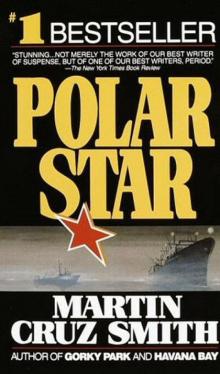 Polar Star
Polar Star Red Square
Red Square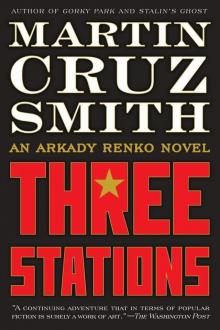 Three Stations
Three Stations Wolves Eat Dogs
Wolves Eat Dogs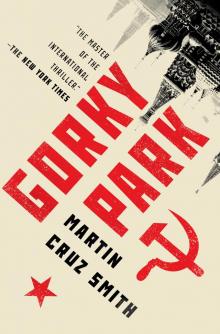 Gorky Park
Gorky Park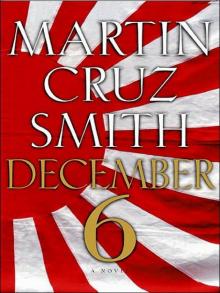 December 6
December 6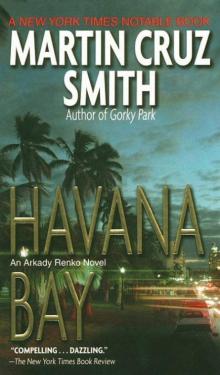 Havana Bay
Havana Bay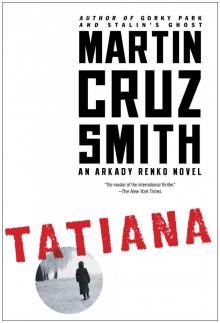 Tatiana
Tatiana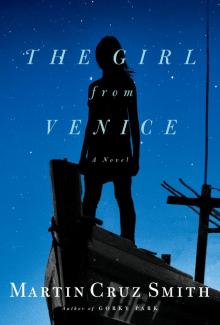 The Girl From Venice
The Girl From Venice Stalin's Ghost
Stalin's Ghost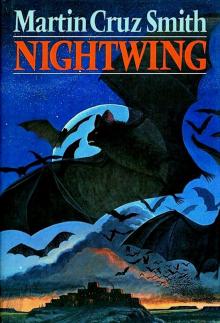 Nightwing
Nightwing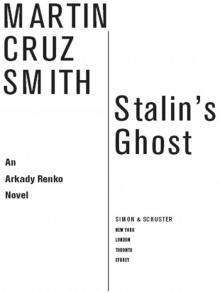 Stalin s Ghost
Stalin s Ghost Gypsy in Amber
Gypsy in Amber Rose
Rose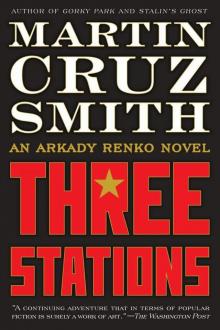 Three Stations: An Arkady Renko Novel
Three Stations: An Arkady Renko Novel The Siberian Dilemma
The Siberian Dilemma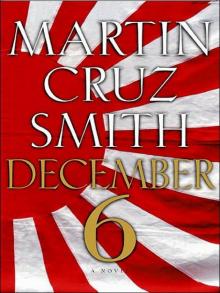 December 6 (V5.0)
December 6 (V5.0)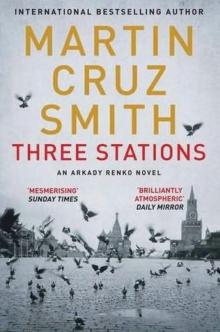 Three Stations ar-7
Three Stations ar-7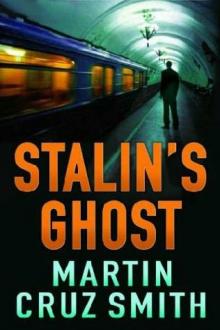 Stalin’s Ghost ar-6
Stalin’s Ghost ar-6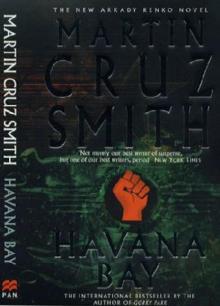 Havana Bay ar-4
Havana Bay ar-4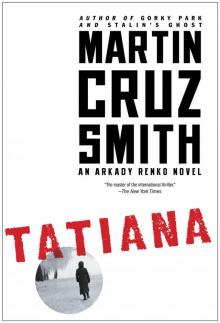 Tatiana ar-8
Tatiana ar-8